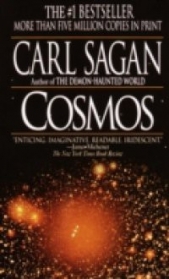Образ человека будущего, Том 7 (СИ)

Образ человека будущего, Том 7 (СИ) читать книгу онлайн
На основе предшествующих трех монографий Международное философско-космологическое общество начало выпуск научного журнала Future Human Image, в котором представлены современные мировые исследования образа человека будущего. Журнал охватывает области нейронаук, педагогики, философии образования и психологии. В данном выпуске представлены работы специалистов из США, России, Украины, Бразилии, Южной Африки, Испании, Казахстана. Журнал публикует исследования на русском, английском и украинском языках
Внимание! Книга может содержать контент только для совершеннолетних. Для несовершеннолетних чтение данного контента СТРОГО ЗАПРЕЩЕНО! Если в книге присутствует наличие пропаганды ЛГБТ и другого, запрещенного контента - просьба написать на почту [email protected] для удаления материала
We can find further development of the mentioned above thought in works by Pitirim Sorokin. The author has mentioned that the basis of an existing culture is always those values, which are important for a particular society [Sorokin, 1992]. In this context, it is important to notice that every historical stage forms a unique architecture of social life. It identifies a particular system of values, which all members of the community have to share. In turn, that system determines the content and the purpose of human existence. Dario Som-mer has rightly underlined that a real human value is in his own content, but not because of the assessment by others. "We should please our Lord, not the crowd. We should under - stand that only following the way pointed by our Creator we can get full self- realization as humans" [Sommer, 2014: 41]. In his "Morals of the 21st century" book, the author draws our attention to the fact that modern people have not been still reflecting a Perfect Human Image programmed by the Almighty. They rather look like a bridge between a wild animal and a true Man. Current image is not completed. That is why "people should realize their eternal unimportance, rebuild their capacities and complete the true Man"s Image. Every person has enough spiritual power to break out of imperfection through constant moral and spiritual improvement" [Sommer, 2014: 47]. The author underlines the importance to become people with a strong will and a firm character, but being sympathetic and united. [Sommer, 2014: 215] To get that purpose, as the author believes, it is necessary to come back to the traditional human values: hard work, honesty, integrity, readiness to sacrifice, tolerance, goodness, love, justice, solidarity, friendship and altruism. It is also important to remember about spirituality as a particular practice, which allows people to develop the highest virtue and get self- improvement through formation of a personal consciousness. As Sommer has identified the mentioned above qualities are the basis for a Completed Human Image. His classification consists of 23 points. Let us consider some of them. "A Completed Man" cannot be influenced by the crowd. His "I am" perception is developed and mature. He is thankful to God, his family and country. He feels hate to anybody. He is patient, kind, sympathetic, obtains the highest human qualities. He is not able to cause harm consciously. He assesses himself objectively. He controls his consciousness and stays open-minded. He evaluates himself according to the current development level, but does not depend on other"s appreciation" [Sommer, 2014: 41 50].
The 21st century is known as a period of rapid changes in the environment, society, culture, economics, interpersonal communication sphere and a Man"s inner world. Alvin Toffler, the author of the "Future Shock" book, discusses in his work the following question: "What do
124 Future Human Image. Volume 7, 2017
The Ideal Image of a Man: the Main Characteristics and Ways of Achieving by Galyna Shevchenko
people feel in times of changes?" In his opinion, they experience an unprecedented acceler-ating and that is why people might look for another world escape. "Their souls can"t catch up with the changes. The world seems to be hostile and scares by its immensity. When new cul-tural standards appear, people get a "cultural shock." The author underlines as well that every culture has its own pace of development. That"s why cultural shock should be considered as a particular phenomenon in the context of a certain period which has appeared as a result of overlapping a new culture level on the old one [Тоffler, 2002]. As Professor Pavel Gurevich notices, it is important not to become a slaver of transience. It is necessary to be prepared for changes, train adaptability in the context of decreasing fear of changes. The proper training should include development of observation and critical thinking skills. It will give an oppor-tunity to assess the particular events and phenomenons in the context of their accordance with the purpose and potential value for future.
Unfortunately, most often we face anti-values. It provokes such negative emotions as pes-simism, disappointment, irritation. They affect human ideals in general and, particularly, nega-tively influence on our young generation. In this situation, it is extremely important to support humanitarian aspect of social life. Today the process of youth education is focused on master-ing competencies. The whole system gives the top priority to the professionalism. However, it is a well-known fact that "professional improvement can"t be substitute for the complex human development process, as these two aspects do not usually go together." We speak about education, which depresses upbringing. Moreover, it is dangerous for a person. Particularly, it is pity to notice that youth upbringing activity as a part of teaching has been excluded from HE teachers" working plans. Following Anton Makarenko ideas, it is worth to say that people create their image all his life. Therefore, we can definitely state that a person should been ed-ucated and increases his culture level all his life as well.
It is important to notice that a principle of culture centricity has become as one of the current trends within the education content and methods modernization process. It supposes development of a humanitarian culture, which should make "the most complicated mechanism of a human soul" (Dmitry Likhachov) to start working through forming the universal value system, establishing positive dialogue as well as through emotional and spiritual development of youth. It is supposed that culture will become the content of pedagogy. Correspondently, the basis for the education content filling includes different texts within certain cultural con-texts as well as different kinds of art, which represent an ideal of a particular historical stage. [Kashekova, 2014] These ideas have a strong potential to become implemented into modern educational process. Culture and arts will help to develop visual and verbal thinking skills, stir creative imagination, get high ground thoughts, arise Beauty in human souls, develop emo-tional culture and an ability to sympathize. What is the power of culture as an educational tool? Philosophical determinations of the "culture content" term give the answer to the mentioned above question.
Among a great number of the "culture" term determinations, we can choose the following: "Culture is a fundamental source for the world recovery which feeds human minds and feel-ings. People can percept the world model and interpret the answers to the main questions in the context of human existence through culture. It lives by its own life. Therefore, it is necessary to safe the culture as we do with a human life. Culture encourages high tension of a spiritual energy, intellectual excellence and human desire to harmonize himself with the environment" [Arnoldov, 2007]. In addition, we can enlarge "culture" tem description and add the follow-ing: culture is a perfect performance. It includes the best examples of morals and aesthetics
Future Human Image. Volume 7, 2017 125
The Ideal Image of a Man: the Main Characteristics and Ways of Achieving by Galyna Shevchenko























